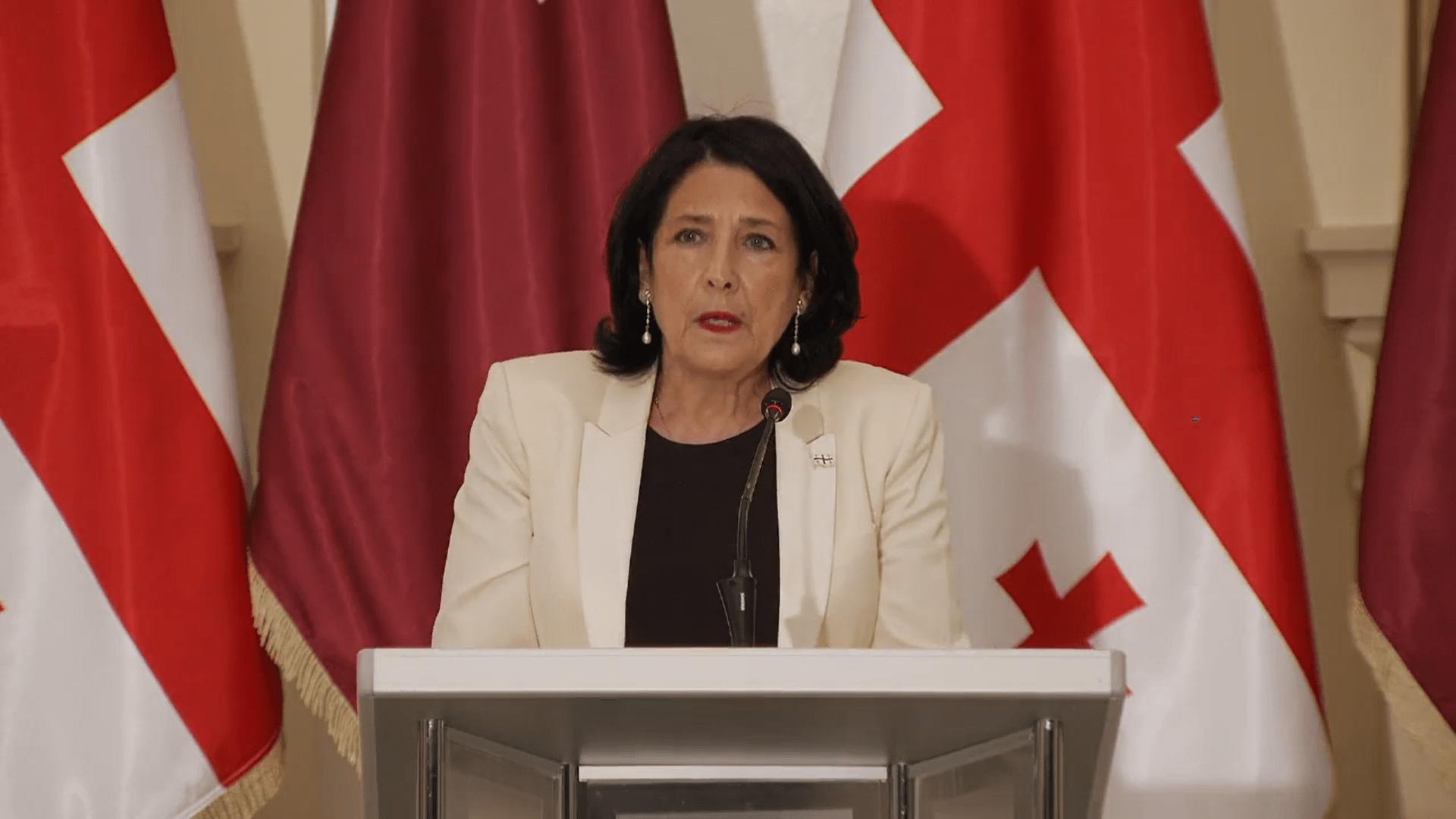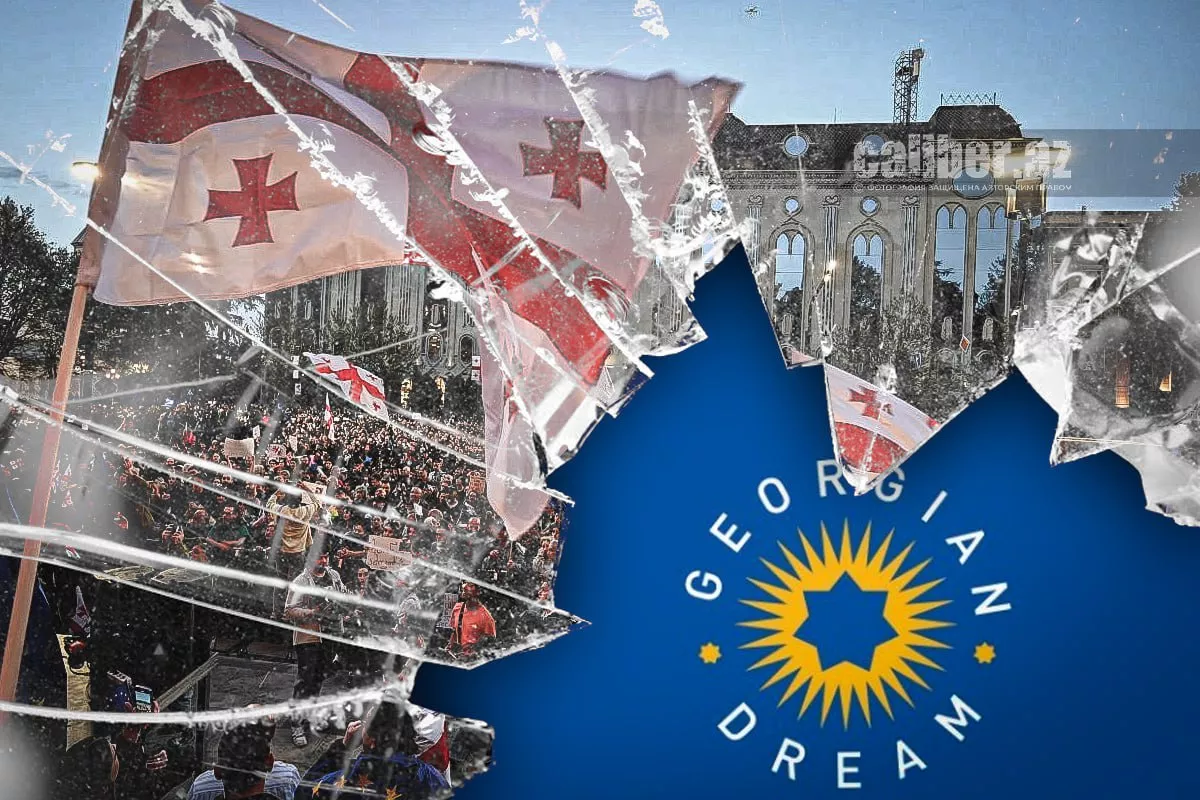Georgia: Western interest fades as opposition turns protests into festive spectacles From “Maidan” to “carnival”
As 2024 drew to a close and 2025 began, the ruling Georgian Dream party solidified its grip on power in Georgia. Newly inaugurated President Mikheil Kavelashvili, accompanied by his family, met with the Catholicos-Patriarch of All Georgia, Ilia II, receiving his blessing and best wishes for success in office. For most Georgians, the endorsement of the Georgian Orthodox Church holds far greater significance than the symbolic "recognition" or "non-recognition" from the European Union.
Meanwhile, former President Salome Zourabichvili, having vacated the presidential residence, along with the pro-Western opposition are seeking new "Maidan-style" protest strategies to sustain the illusion of a "nationwide uprising" against the current government.
On New Year’s Eve, from December 31 to January 1, the opposition organized an improvised "New Year’s feast" on Rustaveli Avenue. The following evening, the opposition continued its "New Year celebrations," although with significantly fewer attendees. With the New Year and Christmas holidays underway, administrative and state institutions in Georgia will remain closed until January 13. Essentially, the country is on a "holiday break," and no major incidents are expected until mid-January.
Protests have gradually taken on a "carnival format," with opposition leaders attempting to maintain the daily presence of their actions by leveraging the crowds of festive revelers. While the carnival-like nature of these protests reduces the immediate risk of destabilization or a coup, the potential danger still lingers.
Western audiences are still being fed disinformation suggesting that massive protests are ongoing in Georgia, with claims of "hundreds of thousands" of Georgian citizens supposedly demonstrating against the so-called "Russian government" and the ruling "Russian Dream" (a term used by Salome Zourabichvili and the opposition to describe the governing Georgian Dream party). Despite their defeat, the opposition refuses to acknowledge the legitimacy of the current government and continues to demand new early parliamentary elections.
By refusing to recognize the newly elected parliament as legitimate, opposition leaders have opted out of participating in its work, effectively cutting themselves off from the parliamentary platform. This clearly signals that the opposition remains focused on an unconstitutional seizure of power, relying on external support. As a result, there is a lingering risk that, once the New Year and Christmas holidays conclude, new provocations could be organized to escalate the protests from their current "carnival" mode to a more confrontational and forceful approach.

The opposition continues its efforts to create an illusion in the West that Georgia's current government is "unrecognized," while portraying Salome Zourabichvili, who no longer holds any official powers, as the "legitimate" leader. In the United States, Republican Congressman Joe Wilson is lobbying on behalf of the Georgian opposition, recently claiming that Zourabichvili had been "invited" to the inauguration of newly elected U.S. President Donald Trump.
Georgian Prime Minister Irakli Kobakhidze has already responded to these claims. "Donald Trump has not invited Salome Zourabichvili anywhere. It was an American 'Kubilius' who invited citizen Zourabichvili to the U.S.," Kobakhidze remarked, drawing a parallel between Joe Wilson’s statements and those of former Lithuanian Prime Minister Andrius Kubilius, who had previously made unsuccessful accusations against the Georgian Dream government.
At best, during Trump’s inauguration, Zourabichvili might "stand in the crowd," much like former President Mikheil Saakashvili did at Trump’s first inauguration eight years ago.
France remains unsettled and unwilling to accept the loss of its influence in Georgia. However, the tone of statements involving French officials has softened compared to the more confrontational rhetoric of French citizen Salome Zourabichvili.
The foreign ministers of the "Weimar Triangle" (France, Germany, and Poland) issued a statement expressing their "deep concern" over the political crisis in Georgia, which emerged following the October 26 parliamentary elections and the Georgian Dream party's decision to pause the process of European Union integration.
"The call for the implementation of OSCE/ODIHR recommendations and standards including possibility of new elections, coming from parts of Georgian society, deserves to be addressed by authorities, in earnest dialogue with all political forces and representatives of civil society," read the joint statement by German Foreign Minister Annalena Baerbock, French Foreign Minister Jean-Noël Barrot, and Polish Foreign Minister Radosław Sikorski.
This marks a shift, with France, Germany, and Poland now urging the Georgian government to engage in "dialogue" with the opposition, rather than endorsing its ultimatums for new elections. There is little doubt, however, that such statements will likely be ignored by the Georgian authorities.

The level of international backing for Georgia’s pro-Western opposition has visibly declined, a fact noted by Georgian government officials. According to Tbilisi Mayor Kakha Kaladze, the West lost interest in Georgia after it refused to follow a "Ukrainian scenario."
"There was unprecedented pressure on our country and government to act not in the interests of our nation or the peaceful future of our people, but in the interests of other major powers, posing clear risks to our country’s security," Kaladze stated, hinting that the West had sought to open a "second front" against Russia through Georgia.
The unconstitutional seizure of power by the pro-Western opposition was intended to ignite conflict in the South Caucasus. However, since the "Maidan-style" approach failed, Western attempts to interfere blatantly in Georgia’s internal affairs appear to have been temporarily paused.
By Vladimir Tskhvediani, Georgia, for Caliber.Az.








